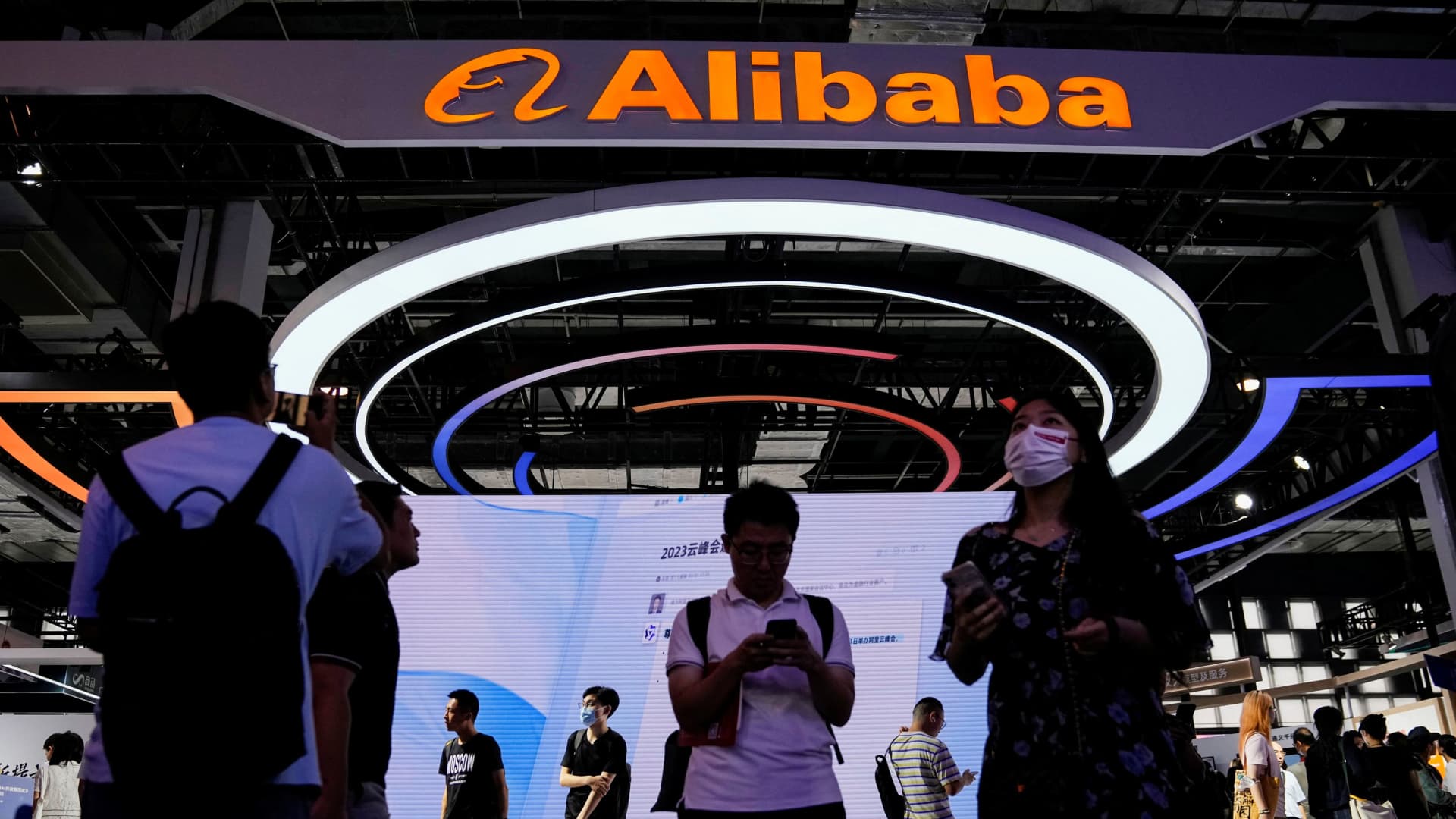

Alibaba Group sign is seen at the World Artificial Intelligence Conference (WAIC) in Shanghai, China July 6, 2023.
Aly Song | Reuters


Alibaba Group sign is seen at the World Artificial Intelligence Conference (WAIC) in Shanghai, China July 6, 2023.
Aly Song | Reuters
In April, Alibaba launched its large language model (LLM) called Tongyi Qianwen. A LLM is an artificial intelligence model trained on huge amounts of data. It is also the basis for generative AI applications, such as ChatGPT — which generate human-like responses to user prompts.
Tongyi Qianwen allows AI content generation in English and Chinese and has different model sizes, including seven billion parameters and above. A model’s parameters refer to its power.
Alibaba will be open-sourcing the seven-billion-parameter model called Qwen-7B, along with a version designed for conversational apps, called Qwen-7B-Chat. This means that researchers, academics and companies globally can use the model to create their own generative AI apps without needing to train their own systems, saving time and expense. Companies with more than 100 million monthly active users will require a royalty-free license from Alibaba to do so.
While Alibaba might not earn licensing fees from open-sourcing its technology, the distribution will help the company get more users for its AI model.
This comes at a time when China’s biggest e-commerce company is looking to boost its cloud computing division through investments in AI, targeting cloud computing as a critical future area for profitability and growth.
Meta earlier this year open-sourced its Llama large language model to researchers and is working with other tech firms to boost its adoption. Microsoft last month said it was making Meta’s Llama 2 available on its Azure cloud-computing service.
Alibaba hasn’t yet announced such a partnership — but if its LLM gains success in the market, it could prove attractive for cloud providers to make it available to customers. Offering a good LLM for AI apps development is a potential competitive advantage for cloud computing players.
Alibaba has already built its own apps using Tongyi Qianwen. Last month, the Hangzhou-headquartered firm launched Tongyi Wanxiang, an AI service that can generate images from prompts.